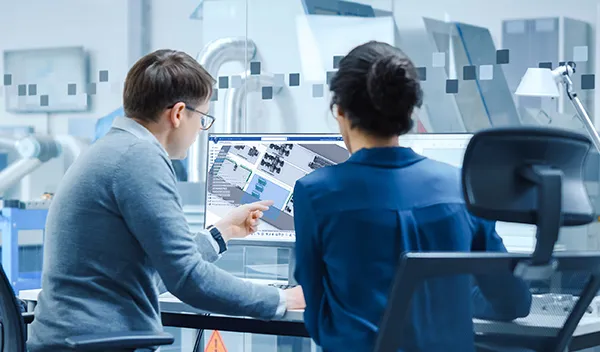5 Benefits for Businesses that Switch to Carbon-Neutral Production
Transition from traditional manufacturing processes to reduce carbon footprint and harmonize business decisions with society’s shared interests.
While manufacturers today are keenly aware of the need to achieve carbon neutrality by 2030, this sustainability goal is too often seen as a burden for companies—something to be begrudgingly undertaken for the sake of the planet—and not something of clear value in and of itself.
But, in fact, embracing sustainable, carbon-neutral practices can have a wide range of practical benefits for participating organizations in alignment with the three sustainability pillars of environmental, social and governance (ESG) performance. It is also worth noting that businesses that achieve high ESG indicators tend to deliver high overall financial performance, with one study indicating a financial return of between 27 percent and 80 percent on low-carbon investment.
In this article, we’ll discuss how manufacturers that make the switch to carbon-neutral production can experience multiple benefits, including finding better uses for waste and accessing stable and powerful renewable resources.
The five benefits of embracing low-carbon processes
Manufacturers cannot rely on traditional manufacturing processes to reduce their carbon footprint and meet sustainable development goals that society has set for 2030. They have to implement new, low-carbon processes and ways of manufacturing to become more sustainable in five areas:
- Reduce energy costs
- Limit waste
- Improve brand image
- Better manage risks
- Promote innovation
Reduce energy costs
Lifecycle assessment capabilities that are improved with simulation enable manufacturers to calculate all environmental impacts across all lifecycle stages of their factory. This is crucial in helping them time their production processes with the availability of renewable energy sources to realize a low carbon footprint and optimize energy draw from the grid.
Limit waste
With the right tools, manufacturers can recycle and recover materials from waste and optimize raw material usage during the design phase. Reducing raw material outputs achieves knock-on effects in promoting more efficient and streamlined working practices, as manufacturers only use what they need, and improves a manufacturer’s bottom line, as they only need to purchase and store the right amount of material.
Improve brand image
When manufacturers can demonstrate the specific actions they’ve taken to achieve sustainable manufacturing and back it up with results data, they can substantiate their brand’s sustainability credentials. Instead of greenwashing, which is merely public relations in action, credibly sustainable companies can become more attractive to sustainability-minded consumers and potential employees looking for meaningful work.
Better manage risks
As more governments move to codify sustainability requirements into law, this opens up manufacturers to operational risks like penalties and litigation. With the right solution, manufacturers can harmonize global operations with different legal requirements. They can also improve energy risk management by integrating the best low-carbon power generation sources to become less reliant on price-volatile carbon-based energy options.
Promote innovation
New production processes can be leveraged to innovate new product lines in a sustainable manner. Nike, for example, innovated its new Flyknit line where new manufacturing processes required minimal labor and enjoyed significant waste reduction while also removing waste from landfills. The line is also profitable for Nike, generating over US$2 billion in revenue since it was implemented..
The solution to transition to low-carbon production
Dassault Systèmes offers a range of solutions to help manufacturers actualize sustainable manufacturing by transitioning from traditional manufacturing processes to innovative, low-carbon ones. These solutions have a basis in powerful simulation and modeling capabilities that are already being used today to, for example, help vehicle manufacturers and OEMs model their carbon output and design products that meet World harmonized Light-duty vehicles Test Procedure (WLTP) emissions targets.
These powerful solutions can be used collaboratively on the cloud-based 3DEXPERIENCE® platform to help manufacturers, even those with a global operational footprint, embrace more sustainable ways of working. There is a clear business case for sustainable working, and Dassault Systèmes can provide the tools businesses need to understand what they need to do and execute against those goals. Get our exclusive white paper to see how manufacturers can implement digital transformation comprehensively to switch to carbon-neutral production while developing innovative products for the market.
Digital Transformation for More Efficient, Carbon-Neutral Production
Discover how a single global, scalable and flexible platform helps accelerate digital transformation in manufacturing by seamlessly linking planning and manufacturing execution with full visibility on the sustainability impact of any decisions before execution.
Read our latest Manufacturing articles
Explore our Industry Solution Experiences
Learn more about how our industry solutions can help you to achieve your professional ambition and business objectives




